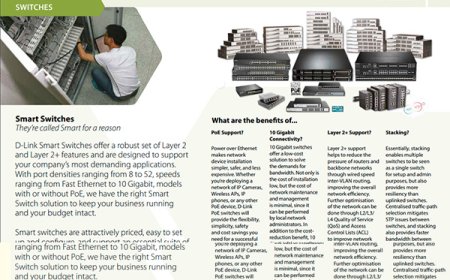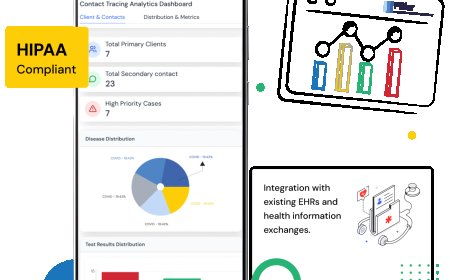How Healthcare Software Development Consultation Drives Better Patient Outcomes
Learn how healthcare software development consultation drives better patient outcomes by optimizing workflows, enhancing care, and improving efficiency.

Introduction: The Growing Role of Technology in Patient Care
Healthcare has come a long way from handwritten records, manual scheduling, and disconnected systems. Today, technology plays a major role in how medical professionals deliver care, interact with patients, and manage operations. But simply having technology is not enough. For healthcare providers to truly benefit from digital tools, there needs to be careful planning, smart design, and thoughtful implementation.
This is where healthcare software development consultation comes in. By working with experienced consultants who understand both the healthcare industry and software development, medical organizations can make better decisions about the tools they use. And these smart choices have a direct impact on one of the most important goals in healthcare: better patient outcomes.
From faster diagnosis to more personalized care, healthcare software development consultation helps providers deliver services that are not only efficient but also more accurate, connected, and patient-centered. In this blog, well explore how consultation services support better patient outcomes and why every modern healthcare organization should consider it as part of their digital strategy.
What Is Healthcare Software Development Consultation?
Healthcare software development consultation is the process of guiding medical organizations through the planning, development, and implementation of digital tools tailored to their specific needs. This could include patient management systems, electronic health records (EHR), telemedicine platforms, mobile health apps, and more.
Unlike basic tech support or one-size-fits-all software providers, consultants take a deep dive into the unique workflow, challenges, and goals of a healthcare practice. They help you identify the right kind of technology, recommend features that truly make a difference, and ensure that every system aligns with medical standards and patient safety requirements.
Its not just about writing code. Its about creating smarter systems that support medical decisions, simplify complex tasks, and improve the overall patient experience.
Why Patient Outcomes Matter in Todays Healthcare
Patient outcomes refer to the results of medical carehow a patient feels, functions, or survives after treatment. In todays healthcare system, improving patient outcomes isnt just a goalits a necessity. Better outcomes mean patients recover faster, experience fewer complications, and have a better quality of life. It also leads to fewer hospital readmissions, reduced costs, and higher patient satisfaction.
As expectations grow and healthcare becomes more patient-focused, the ability to consistently deliver positive outcomes is what sets successful practices apart. This is where digital transformation plays a critical roleand it must be done the right way. Thats why consulting with experts before jumping into development makes a big difference.
Key Ways Software Development Consultation Improves Patient Outcomes
Personalized Solutions for Real Problems
Every healthcare organization is different. A hospital with hundreds of beds has very different needs compared to a small private clinic or a telemedicine startup. Healthcare software consultants work closely with your team to understand the specific challenges you facewhether its managing appointments more efficiently, reducing wait times, or improving access to patient data.
This deep understanding allows for the creation of software that solves real problems, not just adds features. The result is smoother operations, better coordination between staff, and more time to focus on patients.
Better Data Management for Accurate Decisions
Good patient care depends on having the right information at the right time. Consultants help design systems that centralize patient data and make it easy for doctors, nurses, and other care providers to access medical records, lab results, medication history, and imaging reports instantly.
By reducing the risk of missing or outdated information, healthcare professionals can make faster and more informed decisions. This leads to better diagnosis, fewer errors, and more effective treatment plans.
Integration Between Systems for Seamless Care
One of the biggest barriers to quality care is when systems dont talk to each other. A doctor might use one tool to view lab results, another to write prescriptions, and yet another to schedule follow-ups. Switching between systems takes time and increases the chance of mistakes.
Consultants help ensure that all digital toolswhether existing or newly developedare integrated into one seamless system. This improves communication, reduces duplication of effort, and helps patients move smoothly through the care process without delays or confusion.
Enhancing Patient Engagement
When patients are engaged in their own care, outcomes improve. People who understand their treatment, follow their care plans, and communicate with providers tend to be healthier in the long run. Healthcare consultants help build software with user-friendly patient portals and mobile apps that give patients more access and control.
With features like online scheduling, secure messaging, test result notifications, and digital prescriptions, patients are more likely to stay informed and involved. And when patients are more involved, they make better health decisions, stick to treatment, and recover more effectively.
Supporting Preventive Care and Follow-Up
Healthcare software development consultation also focuses on features that support ongoing care, not just one-time visits. Custom systems can be designed to automatically send follow-up reminders, schedule screenings, or trigger alerts based on health trends in a patients data.
This shift toward preventive care helps catch issues early, reduces emergency visits, and supports long-term wellness. By designing systems that go beyond the appointment, consultants help create a complete circle of care that keeps patients healthier over time.
Data-Driven Insights and Continuous Improvement
With the right digital systems in place, healthcare providers can use data to track outcomes, spot trends, and adjust their practices based on what works best. Consultants help build dashboards and reporting tools that measure everything from recovery rates to patient feedback.
These insights allow medical teams to identify areas for improvement, adjust protocols, and ultimately improve the care they provide. Its like having a roadmap to better resultspowered by real data.
Read more: Boost Operational Efficiency with Expert Healthcare Software Development Services
The Consultants Role Throughout the Software Development Lifecycle
The value of a healthcare software development consultant doesnt end at the planning stage. Their expertise is helpful through every step of the process, including:
- Discovery & Needs Analysis: Understanding your specific challenges, processes, and patient goals
- Solution Design: Recommending the right tools, features, and systems based on clinical and technical insights
- Development Oversight: Working with developers to ensure that the product meets healthcare standards and user needs
- Testing & Feedback: Helping refine the system by testing it in real-world healthcare environments
- Training & Rollout: Assisting with onboarding, training, and change management for medical staff
- Post-Launch Optimization: Monitoring system performance and recommending improvements over time
This hands-on support ensures that the final product truly works in your day-to-day realitynot just in theory.
Conclusion
Delivering better patient outcomes is the heart of any successful healthcare practice. But to achieve that goal in todays complex environment, providers need more than just technologythey need the right technology, designed and implemented with care and expertise. Healthcare software development consultation helps providers make smarter choices, avoid costly mistakes, and build systems that truly support both patients and professionals.
From improved data access and integration to personalized care and better engagement, consultation services create a solid foundation for digital transformation in healthcare. By working with a skilled consultant, your organization can unlock the full potential of software tools and offer a higher level of care. Partnering with the right clone app development company ensures that every part of the system is built to serve your missionhelping patients live healthier, longer lives.
FAQs
What is healthcare software development consultation?
Its a service where experts guide healthcare providers through the process of planning, designing, and implementing software solutions tailored to their needs, improving workflows and patient care.
How does consultation improve patient outcomes?
By creating systems that are easy to use, well-integrated, and focused on accurate data and communication, consultation services help reduce errors, speed up care, and keep patients more involved.
Can small practices benefit from healthcare software consultation?
Yes, even small clinics can see major improvements in efficiency, patient satisfaction, and outcomes by implementing custom solutions recommended by experienced consultants.
What kind of software features support better patient outcomes?
Features like centralized EHRs, secure messaging, automated follow-ups, mobile access, and integrated lab and pharmacy data all help deliver faster, safer, and more personalized care.
Is consultation only for new software projects?
No, consultants can also help improve or integrate your existing systems, identify gaps, recommend upgrades, and provide strategies to get more value from the tools you already use.


















